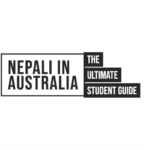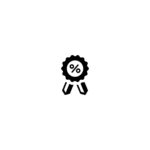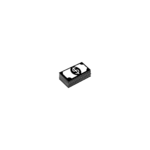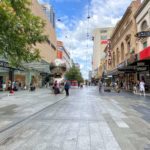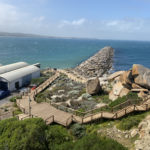A detailed, clean and helpful resource for an international students in Australia.
Making the best out of your student life in Australia isn’t hard. It shouldn’t be!
When you have someone to guide you here in Australia, be it a friend or a simple friendly guide like this, your stay in Australia is going to be better.
Trust me.
In this guide, I have compiled and explained all the things you need to know how-tos and more for making the best out of your international student life in Australia.
In this blog post, you’ll find all the necessary information that you need to know before arriving, after arriving and while staying in Australia. Since this guide is all based on our experience of living in Australia as an international student, you can expect to get some personal touch here.
Arriving in Australia
A little bit of homework to do. Isn’t it?
Before you come to Australia, there’s a little bit of work we all need to do. Starting from finding the right education provider to securing your flight tickets, here are some common things to do before arriving in Australia:
Do extensive research on your desired course, university and state to apply to
There are hundreds if not thousands of international education providers in Australia ranging from different shapes and sizes. It is always wiser to research which state you want to go to among the six states and two territories, the type of university you are looking for if it has the course you want to study.
Make a note, filter and sort to find the right destination. Browse through their website, and brochure, chat online with a representative or visit a local agent before you decide.
Get ready with your English language test result
It is mandatory to have the required level of English competency to get a student visa. You can take English language academic tests like IELTS and PTE. Remember, you’ll need a valid passport to book the test. You might need to allocate some time to yourself to get ready with the test format, preparation and confidence. There are numerous free resources available online for you.
Check this blog post about questions asked in the IELTS test.
Gather your documents and start applying
Once you have the English test result and your academic documents it is time to apply for the education provider you’ve selected. You can visit the authorised agent or do it online yourself. After you have received the offer letter, read it thoroughly, check for any terms and conditions, and when you are ready lodge an application for COE – Certificate of Enrolment.
Secure COE, get OSHC and obtain visa and tickets
- to get a COE, you’ll have to pay the required fees to your university
- you might need something like NOC letter to request your bank to pay fees to your university on your behalf
- get health insurance cover, do medicals, and apply for the visa after you get your COE
- book your ticket to Australia after you get COE and when you are ready to fly 🙂
Pack and bring these student essentials to Australia
Moving to a new destination might trigger confusion and be challenging for you to decide what to bring with you and what not to do. Being an international student in Australia, it is better to bring essentials like your documents, clothes, some food item, money and photographs.
Please check this helpful blog about a list of things to pack and bring to Australia as an international student which contains a PDF list to download.
Don’t forget to declare
Australia has strict border regulations. Please do quick internet research on what you are allowed to bring and what not. Before you land in Australia, you should have completed an Incoming Passenger Card where you declare the items you have.
I have written more about how to declare and what an IPC card looks like here.
Things to do after arriving in Australia
So you have just arrived in Australia or you are planning to land in Australia soon, one obvious question among all international students and everyone is
What should international students need to do first after arriving in Australia?
This is a very genuine and important question. If you plan for your stay in advance, you will save time and can make the best of the time spent here.
Planning in advance will definitely help you to be efficient and achieve your goals.
But it’s not always easy to plan when you are doing something new or going to a new country. You might be interested in knowing how the lifestyle is in your destination country, and how it differs from your home country.
Okay, enough of the background story, let’s dive into the main topic now.
Here below, are some recommended things to do for an international student once you come to Australia be it Sydney, Melbourne, Adelaide or anywhere.
These are the most essential things to do as once you finish doing this, your time here won’t be mismanaged and jumbled up.
Accommodation for International Students in Australia
Once you arrive in Australia and come outside of the Airport, you will need a place somewhere to go, somewhere to accommodate.
Being an international student, you will have numerous choices to opt from ranging from cheap to the best you want to spend.
Some of the accommodation suggestions you might be interested in considering are:
- if you have any relatives, friends or anyone known in the city you are moving to, it’s always a good idea to request them to find a room/ housing for you to live in once you arrive
- there are several helpful communities on social media like Indians in Sydney, Nepalese in Adelaide when you send a message saying you are seeking some accommodation
- If none of the above options is viable for you, you can always contact your university/ college as they are more than happy to arrange accommodation for you like in a uni lodge, or shared housing
- you can also directly head to the hotel, motel, lodges, or shared housings on your own from the airport but advance planning and research might be helpful
Talking about different accommodations, you can go for shared housing which is relatively cheaper compared to when you rent on your own.
University lodges are good options too as they are most of the time within walking distance to your university but you might be able to save some bucks when you stay on shared renting outside.
Open an Australian Bank Account
The second task, although this mightn’t be of utmost priority it is always best to have it done in the initial days is opening a local Australian bank account.
Being an international student in Australia, you are eligible to open bank accounts as a local resident in any bank. You will need a bank account to get your work paid, pay your bills, buy groceries and mostly for banking!
There are various banks in Australia like Commonwealth Bank, Westpac Bank, and ANZ. You can visit the nearest preferred bank for opening a bank account.
To find banks near you, you can search for banks near me in Google Maps (tap here to go see results). When you go to the bank, it’s good to have the following documents with you:
- your passport
- visa copy/ visa expiry details
- your residential address
- email account and phone number (the phone number is optional, and you can supply them once you obtain a sim card later)
- COE (there might be some offers/ discounts for students)
Your bank account will be ready in 5-10 minutes and you will be given information about your bank account. Debit/ credit card will be posted to your residential address within 1-2 weeks.
If you have got any bank draft/ cheque/ cash to deposit you can do it while opening the bank account.
Get used to Australian Transportation
Australia has a reliable public transportation system. Once you arrive here, it’s good to get used to the public transportation system. Even though having your own personal car is a good choice, it might take some time to buy a car.
- Bus, trams, trains and ferries are the major means of transportation in Australia which most of which will be interconnected to a single system.
- You can plan your journey and track vehicles in real-time through websites, apps or google maps. Prepaid smart cards (opal, MetroCard) are the first choice of commuters which you can buy via agents, at train stations or at metro centres, and convenience stores.
- Paper tickets can also be purchased on the vehicle with the driver by cash.
- Tickets and cards must be validated while boarding (and dropping off too in some places). Some states offer a concession for students.
helpful links:
| Australian Capital Territory | http://www.action.act.gov.au |
| New South Wales | https://transport.nt.gov.au/ |
| Northern Territory | https://transport.nt.gov.au/ |
| Queensland | www.translink.com.au |
| South Australia | https://www.adelaidemetro.com.au/ |
| Tasmania | www.metrotas.com.au |
| Victoria | http://ptv.vic.gov.au |
Get a SIM Card/ Mobile phone
This is one of the most important tasks to do! Getting a sim card is fairly easy than you have thought! You can get a sim card only or a sim card and phone together if you want or need to get a new phone.
If you have a recent phone model that supports Australian mobile operators then buying a sim card only will save you some money. To get a sim card/ phone:
- visit the nearest service provider store (Vodafone, Optus, Telstra) or convenience shop
- take your passport, visa, bank account details and coe
- you can choose between prepaid/ postpaid plans
- prepaid plans are cheaper while postpaid plans offer more features and data pack
- sim card would cost around $40-50
- you can buy a sim card and phone together under a contract, payable in a monthly cycle
- unlimited data, international calls and texts, and national calls and texts are major highlights
- ask the staff if there is any student offer/ plan as most of the time there are good offers and plans for students
Some mobile service providers are Vodafone, Telstra, Optus, Kogan, Aldi etc.
Tax File Number (TFN) for international students in Australia
Even though you are an international student in Australia, you are also considered an Australian resident for tax purposes. This means, if you work anywhere in Australia, you must pay the necessary taxes to the federal Australia Government. This is where you need to apply for a tax file number popularly known as TFN.
- TFN is a unique number, which can be easily applied online at the Australian Taxation Office (ATO)’s website for free and will be posted to your residential address in 1-2 weeks.
- As you work, you need to provide your TFN number to your employer as your employer will directly pay the taxes from your salary to ATO.
- Be careful, on fake sites that try to prove themselves to be TFN application site. The official government site in Australia ends with .gov.au domain.
- Visit https://www.ato.gov.au/individuals/tax-file-number/apply-for-a-tfn/ to apply for a TFN.
Visit your University
Okay, now time for something good. 😀
You have a place to live, a phone to communicate, and know about public transportation it is time to visit your education provider – your university, the place which will be your second home in Australia.
- visit your university to get familiarized with the location and environment
- provide them with your Australian residential address and contact number
- ask for your student id card if it can be obtained
- get known if there is any information that you need, be it about classes, orientation or timetable
- inquire about an OSHC health insurance card if you haven’t got one already and is managed through your university
This is all for now, after you have done all this you can relax and chill until some plan hits your mind! 🙂
Studying as an international student in Australia
Get ready
The first thing one needs to do is mentally be ready for joining university. It is essential for one to know the university and get around the places. It can be quite overwhelming at first due to the new environment therefore, it is essential to mentally accommodate the schedule of studies.
Gather resources
Resources are an essential prerequisite for a student. You can start off by preparing resources such as a laptop, notebook, pen and university portal or dashboard. Normally the uni portal details are emailed by the university. You can start logging in and play with the buttons and cursor around the dashboard to process the new study module.
Attend orientation
One of the most exciting parts of the student journey is orientation! This day is a big one for every student. Orientation provides a big opportunity for students to meet professors, make new friends and get the study routines. In many universities, each course takes place in a new designated area and as the university is generally acre big, you can utilise this time to see places around.
Enrol
The next step is- to enrol in your favourite subjects! You can enrol online however if you ever are confused, you can access the information centre at your uni. Staff, there are always ready to help! If you are working somewhere, you can also manage your study hours based on your availability!
Attend classes, make new friends and socialise
This is the time to do what a student does – attend a class! 😀
After you’ve enrolled in your subject, attend classes be it face-to-face or online. Some universities have an AI-based automated attendance system while some have a manual attendance count. International student in Australia has certain hours of class attendance requirement to pass the subject and also to meet visa conditions.
Studying can be hectic and tedious but we all know the best aspect of the study is – friendships! We do make heaps of friends in uni and this is often so much fun. You can utilise this time to strengthen your network and also organise study groups for exams.
Explore your university with your new friends
Your friends are also new as you, therefore, you will have a great time discovering places with your mates. This will help to reduce homesickness at times and also help soften the impact of culture shock.
Visit the library, and support hubs, get used to university computers and printers
Australian universities are rich in resources. Resources include but are not limited to libraries, computer and internet access, and printing centre. As you start your university such resources prove to be very helpful for you to achieve your study goal.
Most universities have dedicated international student hubs just to help you with any queries you may have.
Build a good professional rapport with your professor and facilitators
It is essential to develop a good rapport with your facilitators as well. They are there to help you understand your specialisation better and guide you to progress in your degree with good grades and skills. However, it is not the case that socialising with lecturers will help you achieve good grades but they will help you to understand the best career pathways. Students who wish to pursue their goal to be an academic or attain higher education levels will definitely get the best out of networking with facilitators.
Participate in activities and workshops offered
Getting into uni doesn’t only mean countless study hours. assessments and exams. Throughout your degree, you will get countless opportunities to speed up your career development. If you are pursuing an MBA, workshops such as ‘Build a strong resume for the corporate’ or ‘Xero’ workshops are prevalent. Such workshops will help you develop skills for your future work role. Many important aspects which are not covered in the lectures are accessed through such workshops.
Take the help of mentors, student support and counsellors when needed
Studying in a completely new country can be very difficult at times. It is not only physically exhausting but mentally and emotionally draining too. Especially since the onset of the great pandemic, many students have reported feelings of depression and anxiety when they are far from home.
You can get help from the uni if you are experiencing any issues with your studies or overall well-being. You can access the academic success centre to get help with assignments and exams. Likewise, you can also access mental health counsellors or even psychologists to talk about any issues.
Working in Australia
As you look for and start working in Australia, there are some things to consider.
Get TFN/ ABN
As you work in Australia, you are required to pay taxes to the Australian Government. Depending on the employer you can work and get paid with TFN or ABN (Australian Business Number). Please check the above section where we talk about how to get a TFN number in Australia as a student. To get an ABN number please check this official guide.
Stay updated with Australian regulations, work hour limitations
Being on a student visa in Australia, there are certain conditions mentioned in your visa letter. Check your visa grant letter or check online at VEVO about the different conditions you need to meet while in Australia. As a student, there might be regulations on hours. Breaching your visa conditions may lead to the cancellation of your visa.
Educate yourself about Australian job scams and labour exploitation
Though scams and labour exploitation is prevalent everywhere in this world, you might come across scammers trying to scam you over the internet or face to face, please make sure you avoid such scammers. Also, educate yourself about your rights and responsibilities so no one can exploit your labour. Be aware of what to do when something like this happens to you.
Make an outstanding resume
To secure the job you aim for, start preparation by building an outstanding resume. Since there can be huge competition for a single role, it is a must to present yourself as a better candidate than others. Add your skills, experience and references to your resume. Make the resume look clean and professional.
Get familiar with career websites
There are multiple job portals in Australia. Seek is widely popular and others are also popular. Most government jobs are advertised on government sites and sometimes sin career websites as well. You may need to create your account and add your details to be able to apply for jobs. Most job portals give you the ability to download a resume/ website based on the information you have supplied.
Some of the popular job websites in Australia are:
- Seek
- indeed
- Jora
- Gumtree
Apply for the roles with a curated cover letter
Don’t miss to attach your cover letter while applying for your dream job alongside your resume. While you can send the same resume to multiple employers, it isn’t a good idea to send the same cover letter to all. Based on the job description advertised, modify your cover letter to suit the company and role.
Attend interviews
As you start applying for a job, you might or mightn’t hear from the employers. Don’t lose hope and keep on applying as much as you can. When called in for an interview, do a brief research about the company and role you are going for, be on time and don’t miss to ask questions.
Get your contract, know your rights and responsibilities
Having a contract is crucial while working in Australia. Your contract generally includes information about your information, award, pay rates, work hours and more dos and don’ts. Go through the contract and sign it only after you agree to the information mentioned,
Create a super account and make sure you are paid right
Superannuation, or 'super', is money put aside by your employer over your working life for you to live on when you retire from work. - ato.gov.au
Your employer is responsible for paying your super company your super. You can choose to provide your own super company details or your employer will help you to get a super account with their preferred service provider.
You can check your payslip, super account and ATO’s online website to make sure you are being paid right.
Browse Fair Work Australia’s website
As you continue working, you might be interested in surfing Fair Work Australia‘s website. It contains all the information regarding awards, pay rates, regulations, entitlements, leaves, penalties and more.
Living in Australia as an international student
While you are doing your study in Australia, you’ll get opportunities to learn and live the Australian life and lifestyle. It is the right time to travel, explore and learn. Here are some of my recommendations:
Getting familiar with culture and lifestyle
Living in Australia, eventually, you’ll start getting familiar with the Australian cultural diversity, lifestyle, food, languages and more. It is a good time to learn and try different ways of living a life.
Learning some Australian slang is fun
Australians enjoy speaking slang. You might have heard a few of them already. It is a good idea to get familiar with common Aussie slang, in case somebody utters the slang you weren’t familiar with. Some common Australian slangs are G’day – Good day: hello, mate: friend, Arvo: afternoon, reckon: for sure.
Get familiar with common Australian slang from this blog post I published earlier.
Helpful Websites to Use in Australia
There are several dedicated websites you can use in Australia for different purposes. These websites are free to use and help you to make your stay in Australia easier and smooth. Some of the bests are:
- forums.whirlpool.net.au forum to seek suggestions from others
- finder.com.au to find information,
- domain.com.au to find real estate properties to rent or buy
- flyingsolo.com.au if you want to do business in Australia
- paycalculator.com.au to calculate details about your pay
- reverseaustralia.com to find details about the number who is calling you: almost like TrueCaller
Cost of living
The cost of living in Australia varies with individual states, cities and suburbs you live in. If you live in the CBD, the rentals will be higher, the metropolitan areas might have lower rents, and outer regional areas will be the cheapest to live in. Groceries and utilities costs would be almost similar in all parts. The cost of transportation will also differ according to state and public/ private mode of transportation used.
Find details on the cost of living in Adelaide, Australia to have information on the living cost in Australia for an international student.
Travelling and exploring
Being a student doesn’t necessarily mean you should always be occupied with lectures and assignments. Make time for travelling and exploring the local attractions and tourist destinations. Set a plan with your friends for a day trip, it is fun and you’ll enjoy it.
You can use Google Maps to find local attractions near you.
Here are the must-visit Adelaide and South Australian attractions.
Public transportation
Australia is rich in public transportation infrastructure. Bus, train and tram are the common vehicles used in public transport. Some states like South Australia even offer student concessions on the regular fares. Many international students rely on public transport to go to their uni, work and travel. As you live here, you will learn how public transportation works here and how to efficiently use public transport.
Google Maps is an excellent app to find public transport routes and real-time timetables.
Getting your car
You can buy a car in Australia even when you are a student and drive if you have a valid licence accepted in Australia. You can buy a brand-new car or get a used one. You can look for cars at the nearest dealers, online in Facebook Marketplace, Gumtree, online dealers etc. Before buying please ensure the seller is legit and s/he isn’t scamming you.
Please check relevant state websites suggesting how to buy a car in a particular state.
Adopt a pet if you want
Did you have a cute cat or a dog back home?
You can adopt a pet in Australia even when you are an international student. However, these regulations might differ with each state. A couple of years earlier, we adopted our cat – Eleven, from an adoption shelter in Adelaide.
Check out this blog on how an international student can adopt a cat in Adelaide.
Make use of student discounts
One of the best things about being a student in Australia is getting tons of awesome discounts and concessions everywhere you go. Isn’t it amazing?
Be it when you are getting a pizza from Domino’s or when buying a new iPad to read your notes, there are a lot of places for you to apply your discount.
I have listed all of my favourite student discounts in Australia in this blog.
How to save your money in Australia as an international student
Saving is earning!
I know that international student fees are very high in Australia. Being an international student, I’m sure you would want to save on your day-to-day expenses. By saving I don’t mean by staying hungry. There are several smart ways you can increase your savings in Australia, some of them are:
- doing part-time jobs while studying
- freelancing, earning passive income, starting a business
- saving on groceries, utilities and streaming services
- opting for student discounts and concessions
- don’t forget the tax return
- credit cards, buy now pay later services are helpful too
Find all the awesome ideas to save money while you are studying in Australia in this blog post I published earlier.
Inviting your family members
Staying away from your caring family members is hard. But it shouldn’t have to stay hard for always. You can invite your dad, mom or your cousin to come to Australia and live with you temporarily. Depending on the type of visa, they can stay and live with you for some months. One of the popular visa classes for visitors is visitor visa subclass 600, which to look for to bring your family member here.
What to do after you complete your studies
Finally, the day has come, you have just completed your studies in Australia, so what is next?
Finishing your study doesn’t mean there’s nothing more to do. You can plan for your career and life, take a moment to celebrate, fly back home or choose among the residency pathways.
Here are some of the ideas to do once you complete your studies:
Celebrate
After working so hard to get your degree, countless assignments and tedious exams you have undertaken, and all those lectures and workshops, it is the right time to celebrate. You can celebrate with yourself or invite friends and family. I have seen many graduates celebrating by throwing a party, clubbing, going for a long trip and more.
Attend graduation ceremony
Don’t forget to attend your graduation programmes at your university once you complete your studies. These events are formal and organised a few times a year. Don’t forget to take your family or friends and also take those awesome photos with that graduation hat and degree certificate.
Apply for Post Study Work visa
If you intend to stay in Australia, you can apply for a post-study work visa (PSW) 485 visa that allows you to live, work and study in Australia temporarily for a certain period of time. If you have done a bachelor’s, master’s or higher you will be eligible to get this temporary graduate visa once you complete your studies. Find more about the different types of 485 visas and the process here.
Returning back to your home country
Many international students return back to their home country after completing their studies here. It is a good idea to try to apply the education, knowledge and skill in your home country that you have learned from your study in Australia. Returning back after receiving quality higher education might open doors for better career progression and opportunities for you.
Enhance your career and skills
It is the right time to enhance your skills, take new opportunities and start a new career. After you graduate, you can start applying for jobs in your relevant field, attend interviews and get hired. Also, you can learn new skills and apply them as you progress through your career.
Grow your online presence
It is never late to go online! Being a fresh graduate in Australia, you can build your online presence using multiple channels including social media, websites and blogging and professional networking platforms like LinkedIn.
Foster your network
You can attend the local events and workshops you are interested in, which helps you to meet new people and increase your professional network.
Take further study
We always have something new to learn, something hidden left to discover. Completing one degree in Australia doesn’t necessarily mean you shouldn’t have another degree or proceed further. Having an Australian diploma degree makes you eligible to go to university for undergraduate degrees. Likewise, you can go for postgraduate courses once you have an undergraduate qualification.
Do your skill assessment
Australia is always looking to keep the best talents onshore. Once you complete your degree in Australia, you might be eligible to do a skills assessment in Australia. Remember, there are different skill-assessing organizations for different fields. Some of these are VETASSESS for Vocational Education and Training Assessment Services, AHPRA for medical professions and ACS for ICT professionals.
Find more about all the skill-assessing bodies in Australia here.
Apply for permanent residency
If you enjoy living in Australia, why not make it your home?
You can apply for Australian permanent residency once you meet all the requirements. Having an Australian degree, having a positive skill assessment and good English communication skills might increase your chances of getting a permanent residency quicker.
You’ll have several entitlements when you are on PR, some of these are:
- remain in Australia indefinitely
- work and study in Australia
- receive Medicare benefits
- apply for bank loans when buying a property
- apply for Australian citizenship, if eligible
find more about permanent residency and entitlements at https://immi.homeaffairs.gov.au/visas/permanent-resident/entitlements.
Resources
- A Step-by-Step Guide to Renewing Your Nepali Passport in Australia
- Skills to learn before coming to Australia as a Student
- Nepali in Australia [Ultimate Student Guide]
- Bringing Money to Australia from Nepal [How to & How much]
- A covid positive diary
- Send Money to Nepal from Australia [Highest Rate]
- The Ultimate Guide for International Students in Australia
- Best Student Discounts in Australia – You Should Get Right Now! [Updated List]
- Here’s how to make it possible to pay your international student fees in Australia
- Nepali in Hobart, Tasmania [Student Guide in Australia]
- Your Ultimate Guide on Living in Perth as a Nepali
- Packing list for international students to Australia [& Never Bring These!]
- All About Nepal and Nepali in Adelaide
- Exploring Hobart & Tasmania [Nepali Students in Australia]
- The Southern Encounter Experience with SteamRanger Heritage Railway [Mt Barker – Victor Harbor – Mt Barker]
- Here’s how an international student can adopt a cat in Adelaide, Australia
- Getting your Covid-19 vaccination proof without a Medicare in Australia [add to mobile wallet]
- Aldi’s USB Portable Blender vs Kmart’s Mini Blender
- Tasting the Tastes of Barossa Valley – Food & Wine Experience
- The Fake Foodies – Food Hunt in Australia
FAQs
What are the requirements for international students to study in Australia?
Some of the requirements for an international student in Australia are: have met the English language requirement, have a COE, health insurance, visa and attend classes.
How long international students can stay in Australia?
Depending upon the COE of the course, a student visa is issued defining how long an international student cat stays in Australia. Students eligible for a post-study work visa can live, work and study after they complete their studies for 2-4 years depending on their course and level.
Can I get permanent residency in Australia after studying?
Yes, if you meet the requirements of permanent residency, you can get a permanent residency after your study in Australia.

